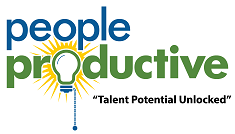Acceptance is all about accepting every individual for who they are because we are all different. We look different, act differently, solve problems differently, find different things funny, show our emotions differently, believe in different things, learn differently, and have different aptitudes. Humans are indeed a very diverse group, and it is out of this diversity of skills, interests and capabilities that the most powerful teams, cultures and companies are built.
Globalization, mobility and changes in 21st century society have meant that we have an increasingly diverse workforce, and so it is highly likely that people with differing backgrounds and beliefs will be working together in many organizations. Failure to accept these differences will fracture teams, impede collaboration, stunt creativity and ultimately impact the efficiency of the work being done and the speed of innovation. Also, talented employees may be lost or underutilized because they are not being accepted by their coworkers.
Recent studies have demonstrated that a diverse workforce, for many reasons, is a competitive advantage. Not only do you benefit from different backgrounds, perspectives and experiences, but in cultivating a diverse workforce you are drawing from a deeper talent pool and increasing the likelihood that you are hiring the best and brightest candidates. But lack of acceptance in an organization is counterproductive and will be a barrier to reaping the benefits of this diversity. Lack of acceptance means that people are not devoting their full energy to the tasks at hand, that they are distracted by differences and partially focused on avoidance or controlling a situation to their satisfaction.
Gallup found that employees with a best friend at work were:
| 43% more likely to report having received praise or recognition for their work in the last seven days. |
| 37% more likely to report that someone at work encourages their development. |
| 35% more likely to report coworker commitment to quality. |
| 27% more likely to report that the mission of their company makes them feel their job is important. |
| 27% more likely to report that their opinions seem to count at work. |
| 21% more likely to report that at work, they have the opportunity to do what they do best every day. |
In fact positive relationships is seen as a major predictor of employee engagement which is turn is a driver of customer engagement at your corporate interface. And when teams have accepting members and are kept in familiar working groups, the following effects are seen. In one study, across 1004 development projects and 11,376 employees, a 50% increase in team familiarity produced a 30% decrease in budget deviations, and 19% fewer defects. (Source: The Hidden Benefits of Keeping Teams Intact; Robert Huckman, Harvard Business School)
So here are 5 simple rules to foster an environment of acceptance in the workplace.
- Make sure introductions happen before starting to work together or as people are gathered to work together. Why? The basis of good working relationships is trust and you cannot have trust without vulnerable sharing. Give up a good self-deprecating story. It humanizes you.
- Agree on acceptable ways to communicate. It’s extremely important to express your preferences and to negotiate acceptable ways to communicate. When it breaks down, it usually starts with poor communication.
- A boost to creating acceptance is to pull folks together out of the office. An hour once a month heals your human infrastructure, puts focus on making relationships matter and creates new bonds that will bear dividends in the office. If you want underline the importance of this, rotate the responsibility for organizing this event.
- Provide good feedback especially to those who are new to your working groups. From their perspective, the worst is to endure the silence of indifference.
- Finally, employ those listening skills. Purported to be one of the most arduous leadership skills i.e. to be able to really listen to the message behind the speech, to intervene in the formulation of your brilliant conversation and to resign yourself to seeking the best reflection and most relevant response to your listener. On the other side of this human interaction is a person seeking acceptance of self, sense of belonging and acknowledgement of an engaged and valued colleague.
There is a very dense but critical article that contains a very interesting turn. It’s entitled “The relative importance of psychological acceptance and emotional intelligence to workplace well-being”, by Emma Donaldson-Feilder et al, in the British Journal of Guidance & Counselling Vol 32. No.2 May 2004. They examined the relative strengths of predictors such as acceptance, emotional intelligence and job control on outcomes of mental health, physical well-being and job satisfaction.
They found that neither emotional intelligence nor acceptance was associated with job satisfaction. In contrast they found a clear relationship between job control and job satisfaction. However, unexpectedly they found that interventions that increase acceptance were more helpful than those that promoted emotional intelligence, thereby improving occupational mental-health and furthermore, propensity to innovate.
What good news! You already have simple keys to creating acceptance and promoting the well-being of your work colleagues.
A message from the PeopleProductive team:
We're thrilled to have your interest in our work and we invite you to join our mission of creating work places where the people as well as the company, both flourish. We welcome your support and participation. To find out more about this just reach out to us here!"



